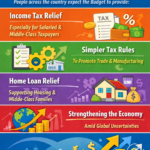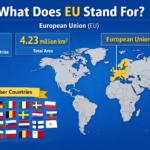United Nations Day: Basics Explained

United Nations(UN) Day, on 24 October, marks the anniversary of the day in 1945 when the UN Charter entered into force. UN Day, celebrated every year, offers the opportunity to amplify UN common agenda and reaffirm the purposes and principles of the UN Charter that have guided memeber countries for the past 76 years.
LEARNING FROM HOME/ WITHOUT CLASSSES/ BASICS
The United Nations(UN) is an international organization founded on 24 October 1945 after the Second World War by 51 countries committed to maintaining international peace and security, developing friendly relations among nations, and promoting social progress, better living standards and human rights. It provides a forum for its 193 Member States to express their views, through the General Assembly, the Security Council, the Economic and Social Council and other bodies and committees. Arabic, Chinese, English, French, Russian and Spanish are the UN official languages.
The name “United Nations” was coined by the United States President Franklin D. Roosevelt and first used in the Declaration by United Nations on 1 January 1942, during Second World War.
24 October has been celebrated as United Nations Day since 1948. The year 2022 marks the 77th anniversary of the United Nations and its founding Charter.
The General Assembly, the Security Council, the Economic and Social Council, the Trusteeship Council, the International Court of Justice, and the Secretariat are the six principal organs of the UN.
The General Assembly is the main deliberative organ of the UN and is composed of representatives of all Member States.
Under the Charter, the Security Council has primary responsibility for the maintenance of international peace and security. It has 15 Members, and each Member has one vote. Under the Charter, all Member States are obligated to comply with Council decisions. It has five permanent members, China, France, Russian Federation, the United Kingdom, and the United States, with veto power and ten non-permanent members, elected by the General Assembly for a two-year term.
The Economic and Social Council (ECOSOC), established by the UN Charter, is the principal organ to coordinate the economic, social, and related work of the United Nations and the specialized agencies and institutions. Voting in the Council is by simple majority; each member has one vote.
The Trusteeship Council is one of the main organs of the United Nations and assigned to it the task of supervising the administration of Trust Territories placed under the Trusteeship System. The Trusteeship Council suspended operation on 1 November 1994, with the independence of Palau, the last remaining United Nations trust territory, on 1 October 1994.
The International Court of Justice (ICJ) is the principal judicial organ of the United Nations (UN). It was established in June 1945 by the Charter of the United Nations and began work in April 1946. The seat of the Court is at the Peace Palace in The Hague (Netherlands). Of the six principal organs of the United Nations, it is the only one not located in New York (United States of America). The Court’s role is to settle, in accordance with international law, legal disputes submitted to it by States and to give advisory opinions on legal questions referred to it by authorized United Nations organs and specialized agencies.



0 Comments